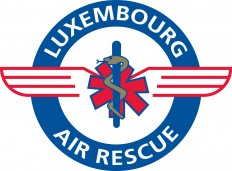Blazing a trail in the industry

ITIJ spoke to René Closter, president and chief executive officer ofLuxembourg Air Rescue (LAR), about his time in the industry and how he started up his country?s first air medical rescue service. Where were you born, where were you educated, and where do you live now? I was born in Troisvierges in the north of Luxembourg, where there is a ?dictum? saying that the heads of the people living there are harder than the trees and there only oaks are growing. After finishing my school as an electrical engineering technician, I was a professional fireman, and after having started studies again in business management, I became a director in the financial services sector with positions in London, Hong Kong and New York. Currently, I am living in Capellen, which is in the western outer center of Luxembourg City. How did you come to work in the air ambulance industry, and more specifically what led to your founding of LAR? Until 1988, air rescue did not exist in Luxembourg. This did not bother anyone in Luxembourg, except a group of professional fire fighters: all too often, we wished we could have been quicker arriving at emergency situations in order to save the lives of more people. So, there was a real need and that is how the idea of a Luxembourg air rescue station was born! We sometimes had one million dollars? worth of debt, and often an uneasy feeling, because we were up to our neck in it. In any case, I had many sleepless nights, but my stubbornness, and above all the slow but steady increase of support of the population (currently up to 56%), helped to give Luxembourg Air Rescue a steady value in the country. Used to taking risks, in 1995 I took the plunge and leased 2 state-of-the-art McDonnell Douglas MD900 Explorer helicopters. LAR was the first operator in all of Europe to use this helicopter. Now, we operate six MD902 helicopters and we have four fully equipped air ambulance jets, which make us a major player in the global aeromedical industry. I am also proud to say that we are one of the only organisations in this sector that is financially stable and I believe my background as a banker was very helpful. LAR was the world's first air ambulance company to be awarded the ISO 9001:2000 quality label. Why was attaining this standard so important to you? In aviation, quality is equivalent to safety, and this highest quality label, the ISO 9001 certificate, guarantees maximum control and therefore optimum safety and quality in the interests of the patient. As an EHAC board member, could you tell us of any current initiatives the organisation is involved in that relate to fixed-wing aircraft? EHAC is keen on continuously putting forward quality standards. My experience taught me that there are many ?cowboys? in this business with only little quality. But we have learned that quality has a price and as EHAC we are working on a high-level certification for quality which should be reflected in the European Aviation Safety Agency regulations. LAR has been involved in various humanitarian missions. Would you like to carry out more of this type of work? Have you been personally involved in any of this type of work? For 15 years, I was involved in humanitarian missions and one thing I have learnt is that in these missions air rescue services get their true value and significance. Therefore, we work in close cooperation with the national authorities of a country where a disaster or other incident has occurred, which means the government and the related ministries, and we have recently signed a contract that allows us to be involved regularly in such missions in the future. How has the European air ambulance industry been effected by the economic downturn? For LAR and European Air Ambulance, there was no real impact during this economic turmoil in terms of number of missions, but we observed that the market shifted a little bit in terms of the nature or destination of the missions. We operate a lot of missions in Africa and there we have noticed that we fly more people out of these regions in order to bring them in hospitals in Europe to be operated on, instead of repatriating them once the surgery has been done locally. This is due to the fact that political situations have changed in many African countries, together with the worldwide financial crisis. However, we did notice that in some places quality has been lowered as some air taxi companies, to make ends meet at the end of the month, removed the seats out of their aircraft to put stretchers in their place and tried to undercut the prices! Neonatal capabilities are also a current must-have for international air ambulance companies. Why is this trend occurring now? Neonatal transports are very sensitive and delicate and require not only special equipment, but also highly qualified staff. Not many air ambulance companies can provide these and therefore LAR/EAA is one of very few offering this service worldwide with a dedicated paediatrician team and two incubators. Very recently, we were involved in a mission bringing a 29-week-old weak and sick baby from a New Delhi (India) hospital to a much more specialised neonatal intensive care unit in Bangkok (Thailand). This particular mission demanded a lot of preparation, which had to be done in a very short period in time. Our specialised medical team equipped one of our LearJet 35As with an incubator and all the relevant material and medication to transport the intubated and ventilated premature baby. If you could work in any other industry or any other role, what would you be and why? Headhunters are regularly contacting me offering me interesting jobs, but LAR is my ?baby? and although some offers seem interesting, I would never do something else. What are you most proud of - personally and professionally ? First of all I am proud of my staff and not for nothing do I like to say, ?Our people make the difference.? Secondly, I cross my fingers, but until now, we have never had a severe incident where one of our guys was injured. How and where do you spend your free time? Unfortunately, in the last 30 years, I never learnt the words ?free time?; can you spell it for me? You are in the process of retiring from your role after a long and impressive career: who will take over the helm at LAR, and what are your plans for the future? I will die in the saddle! What motivates you/what is your guiding philosophy? Our mission is to save human lives and to preserve people?s health by operating rescue helicopters and ambulance aircraft in Luxembourg, the Greater Region and throughout the world 365 days a year by applying high safety and quality standards.






